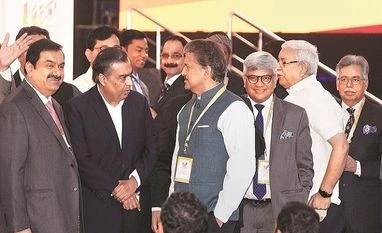A day after Prime Minister Narendra Modi announced a mega defence manufacturing cluster in Uttar Pradesh, the ministry of defence (MoD) on Thursday pitched the state for substituting the country’s arms import bill.
India is the world’s largest military hardware importer and among the top five military spenders. Between 2012 and 2016, India accounted for about 13 per cent of the global arms imports.
India is projected to spend $250 billion on defence procurement over the next decade. In this backdrop, the Modi government has vigorously been pushing its agenda of shedding the largest arms importer tag by encouraging foreign military hardware manufacturers to collaborate with Indian companies for boosting domestic production and substituting the mammoth import bill.
Union Defence Minister Nirmala Sitharam said UP possessed the legacy of skilled workmanship in metals, besides having a vast defence manufacturing base in Kanpur with almost six public sector undertakings manufacturing arms and defence-related wares.
“The state always had strong fundaments in the sector. Now, this sector needs the integration of the industry wit the government so that our arms import bill could be substituted with domestic production as much as we can,” she said addressing a session on ‘Defence & Aerospace: Investment Opportunities in UP’ at the ongoing two-day UP Investors Summit here.
Sitharaman observed that despite having a sound manufacturing base, India had in the past been blindly buying military hardware from abroad without promoting the domestic industry.
She announced that soon a joint team comprising senior government officials and serving army personnel would visit districts to be covered under the proposed defence manufacturing corridor in UP to confabulate with private stakeholders, including manufacturers and aggregators. The districts include Aligarh, Agra, Jhansi, Kanpur, Lucknow and Chitrakoot, which fall under the catchment area of the mega corridor, which entails direct investment of almost Rs 200 billion.
The team would study the market and create awareness among the manufacturers about the specific requirements of the defence wings. In the process, this would also energise the Micro, Small and Medium Enterprises (MSME) space in the state, she underlined.
Meanwhile, the Centre would set up common facility centres in the corridor to further incentivise private companies set up shop and cut their cost of production. “For example, we would establish ammunition blast testing centre with regards to ammunition production,” she said.
Earlier, chief minister Yogi Adityanath had claimed UP had the potential to attract investment of almost Rs one trillion in the defence manufacturing sector in the coming years.
In his address, Adityanath announced UP was formulating its aerospace and defence manufacturing policy to promote the sector and leverage the many advantages that UP enjoyed, including strong network of expressways and highways, land availability, large consumer market, vicinity to the national capital and a proactive policy framework.
UP is eying private investment commitments of Rs 5 trillion at the Summit, which was inaugurated by Modi yesterday in the presence of top industry captains, including Mukesh Ambani, Gautam Adani, Kumar Mangalam Birla, Subhash Chandra, Rashesh Shah, Anand Mahindra, Naresh Trehan etc.
Modi exhorted UP and Maharashtra to compete with each other in becoming the first trillion dollar economy in India, while stressing upon the theme of cooperative and competitive federalism among states for inclusive development.
On the inaugural day, the Adityanath government signed 1,045 Memorandum of Understanding (MoU) worth almost Rs 4.30 trillion in different sectors, including agriculture, food processing, tourism, infrastructure, IT, dairy, MSME etc.
Unlock 30+ premium stories daily hand-picked by our editors, across devices on browser and app.
Pick your 5 favourite companies, get a daily email with all news updates on them.
Full access to our intuitive epaper - clip, save, share articles from any device; newspaper archives from 2006.
Preferential invites to Business Standard events.
Curated newsletters on markets, personal finance, policy & politics, start-ups, technology, and more.
)